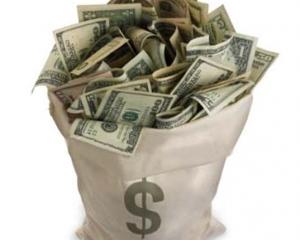In notes for a speech to the Institute of Chartered Accountants, Dr Cullen outlined his thinking on tax cuts, saying there would be no tax-free income threshold and no cuts to GST.
Tax relief had to be ‘‘as fair as possible to all workers'', he said, adding he would outline a threeyear programme on May 22.
His initial preference had been for a tax-free income threshold.
‘‘This would have seen, for example, the first $9500 of income not attract income tax,'' Dr Cullen said.
On the surface, this had appeared to be an appealing idea.
‘‘However, it became clear that it would have only a minimal benefit for a very small number of low income earners.''
Up to 90% of those earning below $18,000 were on temporary low income - students and youths - or supported by benefits or superannuation.
Dr Cullen said the move would deliver less assistance to low income workers than the $3.7 billion cost in the third year warranted, and he would be ‘‘unable to provide meaningful relief for those further up the income scale''.
Dr Cullen also rejected calls for removing GST on food and petrol, saying it would make the tax system inefficient and any gains would be quickly wiped out.
He also ruled out an acrossthe-board cut to the GST rate, arguing it would give the most assistance to those who had the most to spend, at an estimated cost of $2 billion.
While Dr Cullen said all taxpayers would get some benefit in the budget, he played down expectations of a large windfall.
‘‘We will not announce huge tax cuts,'' he said.
‘‘We will not buy into media spin that a ‘big bang' budget is vital to electoral success, when delivering such a budget would be a recipe for economic failure.''
Dr Cullen now appears to have left himself with three options:
- Raising the thresholds at which people pay higher tax rates.
- Cutting the rates.
- Making a lump payment tax return or dividend.
He has yet to reveal any details about timing or size of the cuts, though officials have been assuming $2 billion for planning purposes.
In his speech, Dr Cullen stressed again that his tax cuts package would not result in increasing debt levels or service cuts and would not increase income inequalities.
The recent food and oil price rises, combined with the international credit squeeze, the high dollar, drought and inflation, meant New Zealand was now ‘‘confronting the most uncertain and potentially challenging global environment we have seen in recent times''.
The Government could manage the ‘‘harsh edges of economic pressure points'', but not compensate for them entirely.
Large tax cuts by previous governments had led to cuts in services and made New Zealand a worse country in which to live, Dr Cullen said.


